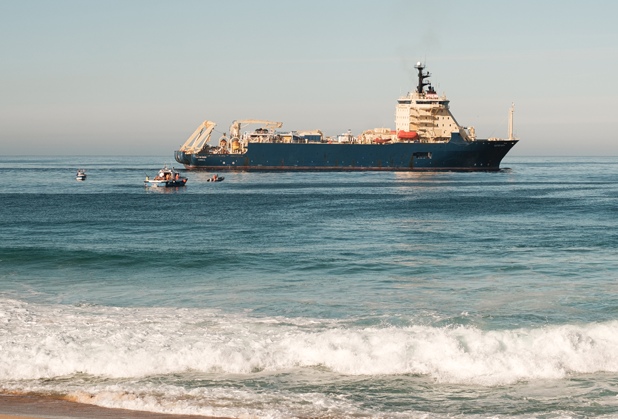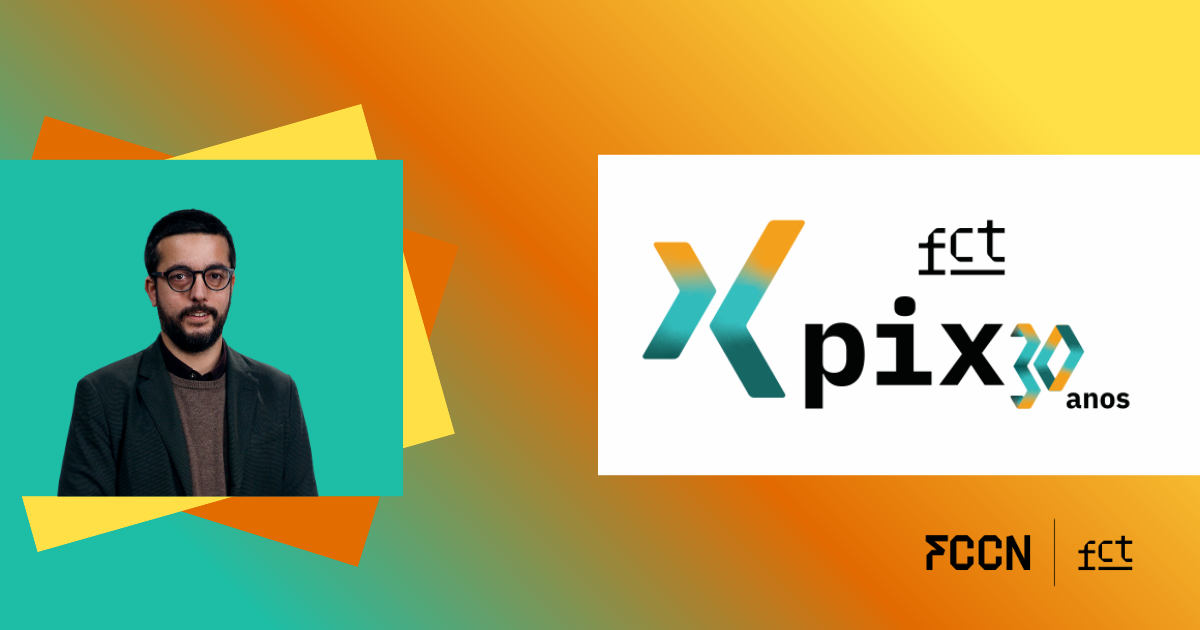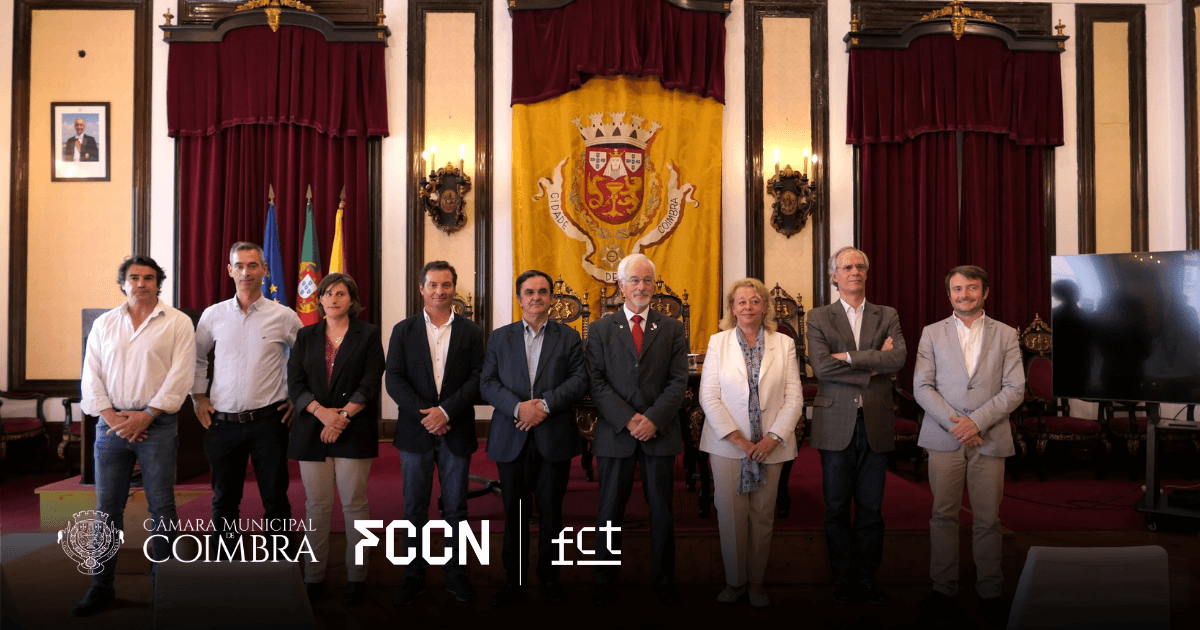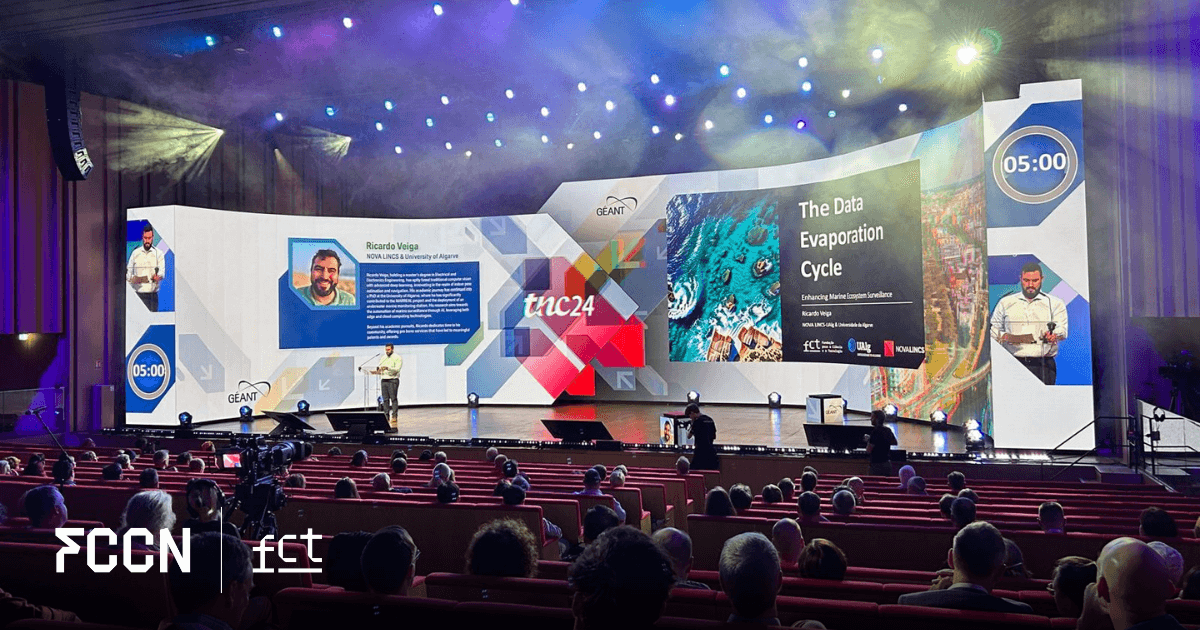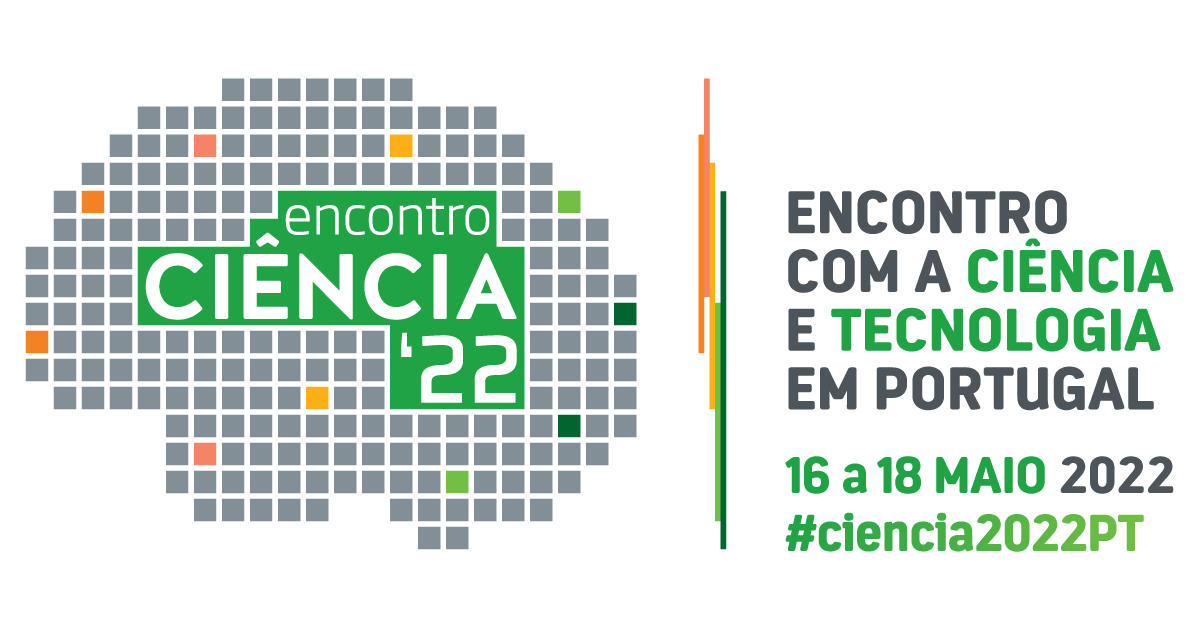A cutting-edge fiber optic cable connecting Portugal and Latin America has arrived in Sines. The project is possible thanks to the crucial role of the education and research community.
THE EllaLink announced that its state-of-the-art, low-latency submarine cable system has already anchored in Sines, from where it will connect to Latin America. The infrastructure is expected to become fully operational in the second quarter of this year, providing an unprecedented level of international connectivity between the two continents, reaching Europe via Portugal.

The creation of this infrastructure is seen as one of the major investments of the Portuguese Presidency of the European Union. The operation involves an investment of €150 million, approximately half of which is financed by "anchor clients" (Bella Consortium, Cabo Verde Telecom, and EMACOM). The remaining €501,700 of the investment comes from the pan-European Marguerite II investment fund.
EllaLink will open a “corridor” for data transmission between the two continents, providing new opportunities for the European market. In addition to first direct high-speed submarine cable link between Europe and Latin America, the EllaLink system also includes several land routes that connect Data Centers strategic in Lisbon, Madrid, Marseille, São Paulo, Rio de Janeiro and Fortaleza, in partnership with Equinix and Interxion.
The role of the FCCN Unit
The Ella Link submarine cable arrived in Portugal on January 6th. The entry point for this structure into Europe is in Sines, which welcomes the landing station of EllaLink cable. The academic and research community played a decisive role in the implementation of this project, since the implementation of this structure was possible thanks to the funding from the program BELLA (Building the Europe Link with Latin America), with the aim of creating a research and education network between the two continents throughout the system's lifetime.
The Bella Program is led in consortium by several national education and research networks. The National Scientific Computing Unit of the Foundation for Science and Technology (FCCN Unit), while NREN (National Research and Education Network) Portuguese is the national representative in this consortium which is also formed by the Regional Academic Networks – GÉANT (Europe) and RedCLARA (Latin America) and by the counterpart NRENs of Brazil, Chile, Colombia, Ecuador, France, Germany, Italy and Spain.
Latency reduction
Over the past few decades, the consumption of digital products has increased the need for connectivity between countries and continents: from simple voice transmission to real-time video transmission. streamingThe future should follow the same path, considering all the future applications that will be possible thanks to the implementation of 5G worldwide. These applications require lower latency, that is, a reduction in the time it takes for information to travel across the network, on the path between users. Data Centers or platforms. In this context, latency values have become an essential factor for the digital world.
By creating a direct route between Europe and Latin America, avoiding passage through third countries, EllaLink reduces latency by 50%, in compared to the current infrastructure, reaching a real value of less than 60ms between Portugal and Brazil.

The impact on the user
Furthermore, the cutting-edge technology used in the EllaLink system ensures high-quality access to telecommunications services and applications through a direct, high-speed, and very low-latency connection. This will be beneficial not only for all telecommunications platforms but also for cloud services. access to content, all types of digital businesses and even the gaming industry.
During the first months of 2021, EllaLink will reinforce its network so that it can be operational by the end of the second quarter. Connections to Madeira Island and Cape Verde, as well as Marseille, are planned. which will allow for expanded connectivity with Africa, Asia and the Middle East. Other potential connection points with Mauritania, Morocco, French Guiana and the Canary Islands are already in sight.
“Like so many other areas of our society, we also Science increasingly depends on access to and the ability to apply digital technologies. Corporal Ella”, highlights the member of the Board of Directors of the Foundation for Science and Technology (FCT), Nuno Feixa Rodrigues.
Science has repeatedly demonstrated its fundamental role in creating solutions in a wide range of application areas, helping to pave the way for solid and sustainable human and technological development. Today, this mission increasingly depends on the capacity for collaboration between scientific fields, cultures, countries, and oceans, as well as on access to advanced digital technologies. The EllaLink cable exponentially increases the potential for collaboration in Science and Innovation between Europe and Latin America through an infrastructure that, in addition to the important capacity for exchanging data between continents, will also be an instrument of Science, capable of collecting data from the ocean floor and the surrounding water mass,” he emphasizes, underlining the FCT’s commitment: “EllaLink is, above all, a scientific challenge in many fields of knowledge that the FCT is ready to embrace, involving and encouraging the participation of the entire national scientific community.”
